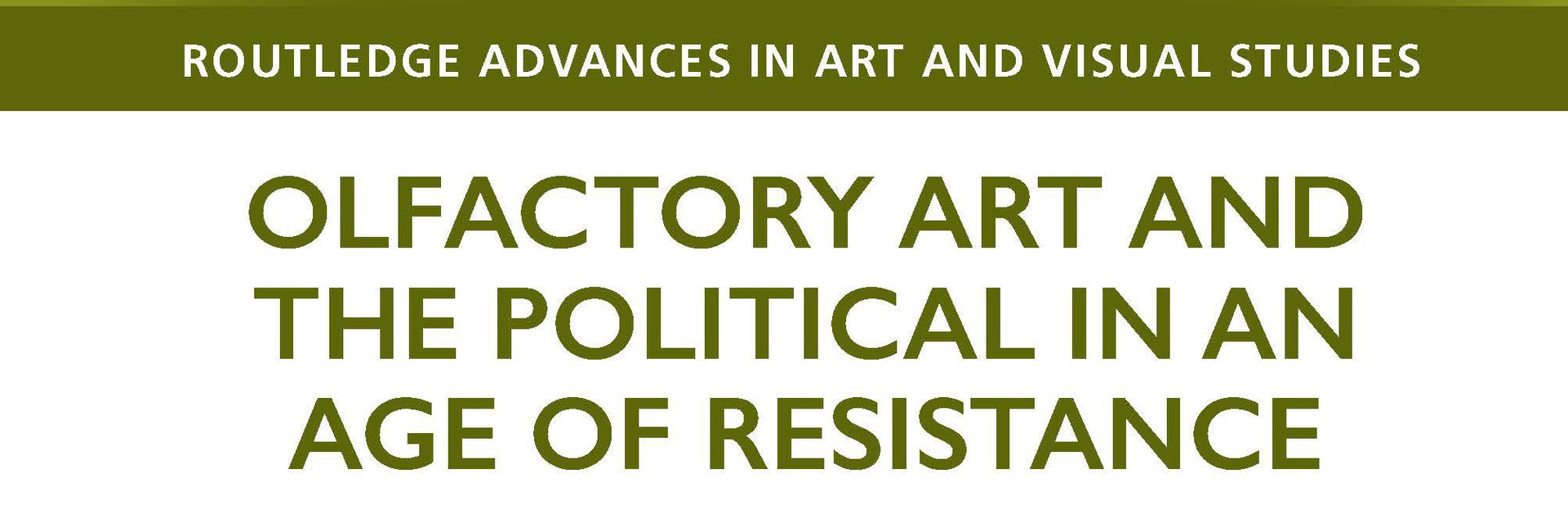Publikation Dorothée King: Is There Empathy through Breathing?
27.8.2021 | Hochschule für Gestaltung und Kunst Basel
The book "Olfactory Art and the Political in an Age of Resistance" by Gwenn-Aël Lynn and Debra Riley Parr claims a political value for olfactory artworks by situating them squarely in the contemporary moment of various forms of political resistance. Each chapter presents the current research and art practices of an international group of artists and writers from the United States, Canada, France, Germany, Switzerland, Thailand, Sweden, and the Netherlands. The book brings together new thinking on the potential for olfactory art to critique and produce modes of engagement that challenge the still-powerful hegemonic realities of the twenty-first century, particularly the dominance of vision as opposed to other sensory modalities. The book will be of interest to scholars working in contemporary art, art history, visual culture, olfactory studies, performance studies, and politics of activism.
"Breathing is a constant process of filling and emptying the lungs. The internalization and letting-go of air stands for exchange and border-crossing between an organism and its environment. Just as breathing can connect the inside and the outside in a positive sense, the inability to breathe or inhaling something unpleasant may lead to exclusion, a feeling of non-connectedness, or in the worst case to death.
As I am writing these lines, the death of George Perry Floyd is present in many people’s minds. Demonstrations in opposition to police violence against Black people are spreading all over the planet. While I prepare myself to write about smell, breath, and the arts, the slogan of the Black Lives Matter movement, "I can’t breathe," keeps resonating in my mind.
"I can’t breathe" were the last words of both Eric Garner and George Floyd, two Black men who choked to death during their arrests in 2014 and 2020 as a result of excessive force by police officers. Unfortunately, this phrase, named most memorable quote of 2014, was revived in 2020 (Izade 2014, 1).
Breathing is essential to being alive. The demonstrations against police violence additionally imply that being able to breathe stands for feeling well and being understood. "I can breathe" means living a life without constant fear. Breathing is living a life on equal terms. Racism is one of the most entrenched toxins in our society to this day, and in its interwoven injustice it remains incomparable to other toxic forms.
The two olfactory artworks I intend to discuss here do not address racism directly. Racism and how it is made visible these days are more institutionalized than the social injustice addressed in Vaporización, 2002, by Teresa Margolles and Pollution Pods, 2017, by Michael Pinsky…" – Dorothée King

